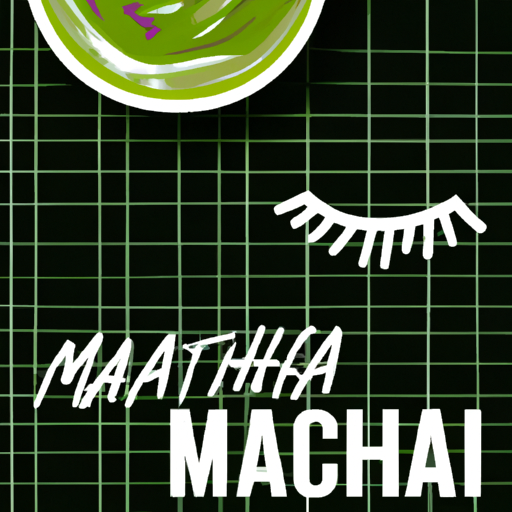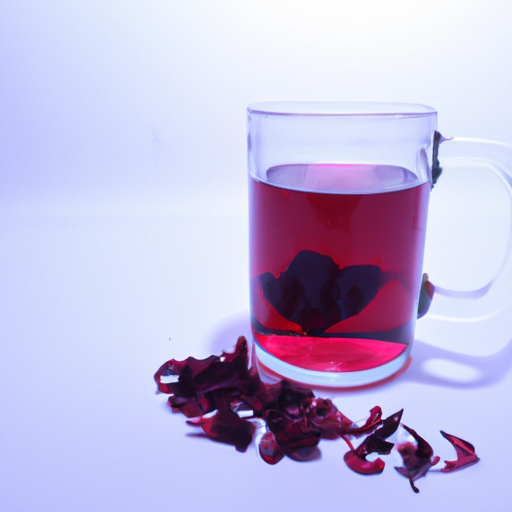Being a fan of matcha, I frequently end up consuming multiple cups daily. The enticing bright green hue and scrumptious flavor make it irresistible, alongside the significant health advantages it offers. Nonetheless, it’s possible to have an excess of even the best things. Thus, what are the consequences of consuming excessive amounts of matcha?
First, let’s talk about what matcha is and why it’s become so popular. Matcha is a type of green tea that’s been ground into a fine powder. Unlike traditional green tea, which is steeped in water and then discarded, matcha is whisked into the water, so you’re drinking the whole tea leaf. This means that matcha is much more concentrated than regular green tea, and it contains higher levels of antioxidants and caffeine.
In the next sections, we’ll explore the health benefits of matcha, as well as the negative effects of overconsumption and how to enjoy matcha in moderation.
Key Takeaways
- Overconsumption of matcha can lead to negative effects such as caffeine overload, jitters, anxiety, and digestive issues.
- It’s generally recommended to limit matcha consumption to no more than three cups per day to avoid these negative effects.
- Pregnant or breastfeeding women, children, and individuals with liver or kidney problems should consult with a healthcare professional before consuming matcha due to its caffeine content and potential medication interactions.
- Matcha should not be relied on as a sole source of health benefits, and a balanced diet and healthy lifestyle are important.
What is Matcha
So, you’re curious about matcha? Well, let me tell you, it’s a finely ground powder made from green tea leaves that’s been consumed in Japan for centuries.
Matcha cultivation requires a lot of care and precision, as the tea plants used to make matcha need to be kept in the shade for several weeks before harvest. This causes the leaves to produce more chlorophyll, giving the tea its vibrant green color and unique flavor.
Matcha has been consumed in Japan for centuries, and its ceremonial significance is deeply rooted in Japanese culture. It’s traditionally served during tea ceremonies, which are elaborate rituals that emphasize mindfulness, respect, and harmony. During these ceremonies, matcha is prepared and served in a specific way, using specialized utensils and techniques that have been passed down for generations.
Matcha isn’t just a cultural phenomenon, though. It also offers a number of health benefits, thanks to its high concentration of antioxidants and other beneficial compounds. But we’ll get to that in the next section.
For now, let’s continue exploring the fascinating world of matcha.
Health Benefits of Matcha
Matcha’s multitude of health benefits make it a popular choice among health enthusiasts. This bright green powder is packed with antioxidants, vitamins, and minerals that can boost your overall health and well-being. Matcha is a great source of catechins, which are powerful antioxidants that can help protect against cancer, heart disease, and other chronic illnesses. It’s also high in L-theanine, an amino acid that can promote relaxation and improve mental focus.
To get the most out of matcha’s health benefits, it’s important to use high-quality, organic matcha powder. You can use matcha in a variety of recipes, from smoothies and lattes to baked goods and desserts. The flavor profile of matcha is unique, with a slightly bitter taste that can be balanced out with sweeteners like honey or agave.
Incorporating matcha into your diet can help improve your overall health and well-being. From boosting your energy levels and promoting healthy digestion to reducing inflammation and protecting against chronic diseases, the benefits of matcha are numerous. However, it’s important to remember that like any other food or drink, overconsumption of matcha can have negative effects.
Negative Effects of Overconsumption
So, I’ve been drinking a lot of matcha lately, and I’ve noticed some negative effects that have made me rethink my consumption.
First of all, the high caffeine content can lead to a caffeine overload, which can cause headaches, dizziness, and even heart palpitations.
Additionally, I’ve experienced jitters and anxiety from drinking too much matcha, which can be really uncomfortable.
Finally, overconsumption of matcha can lead to digestive issues like stomach cramps, nausea, and diarrhea.
It’s important to be aware of these potential negative effects and consume matcha in moderation.
Caffeine Overload
Drinking too much matcha can lead to a caffeine overload, causing jitters, anxiety, and difficulty sleeping. Matcha contains caffeine, which is a stimulant that can have negative effects on the body when consumed in excess.
If you’re sensitive to caffeine, it’s important to be mindful of your matcha intake or consider caffeine alternatives to reduce your caffeine intake. Caffeine overload is not just limited to matcha, but it’s important to be aware of the potential risks of consuming too much.
While caffeine can provide a boost of energy and focus, it can also lead to negative side effects such as jitters and anxiety. It’s important to listen to your body and moderate your matcha consumption to prevent these symptoms from occurring.
Jitters and Anxiety
Feeling jittery and anxious after consuming too much matcha can be a result of caffeine overload, but there are ways to prevent these negative side effects.
To reduce jitters, there are techniques such as drinking water, taking deep breaths, and engaging in physical activity. These actions can help to flush out excess caffeine and calm the nervous system.
Additionally, there are alternatives to matcha that have lower caffeine content, such as herbal teas or decaf matcha.
Managing anxiety caused by matcha consumption may require lifestyle changes or therapy. Practicing stress-reducing activities like meditation or yoga can help to alleviate anxiety symptoms. Seeking professional help from a therapist or counselor can also provide effective coping strategies for managing anxiety.
It’s important to listen to your body and recognize when matcha consumption is causing negative effects, and to take steps to address them.
Moving on to the next section about digestive issues, it’s important to note that excessive matcha consumption can also lead to gastrointestinal discomfort.
Digestive Issues
Excessive matcha consumption can lead to digestive discomfort, but don’t let that deter you from enjoying this delicious and healthful beverage in moderation.
Bloating and stomach cramps are common symptoms of overindulging in matcha. The caffeine in matcha can stimulate the digestive system and cause an increase in stomach acid production, leading to discomfort. Additionally, matcha contains tannins, which can cause constipation and further contribute to digestive issues.
It’s important to listen to your body and consume matcha in moderation to avoid digestive discomfort. While the exact amount that can cause digestive issues varies from person to person, it’s generally recommended to limit matcha consumption to no more than three cups per day.
In the next section, we’ll explore how to determine how much matcha is too much and what other health concerns may arise from excessive consumption.
How Much Matcha is Too Much
If you’re not careful with your matcha intake, you could easily overload your system and experience some unpleasant side effects. While matcha does offer potential health benefits, it is important to practice portion control and gradually increase your consumption. So, how much matcha is too much?
To answer this question, it’s important to consider the caffeine content of matcha. One serving of matcha contains about 70mg of caffeine, which is roughly equivalent to one cup of coffee. Consuming more than 400mg of caffeine per day can lead to negative side effects such as jitteriness, anxiety, and digestive issues. This means that drinking more than 5-6 servings of matcha per day could be considered excessive.
To help you visualize how much matcha you should be consuming per day, here is a table outlining the recommended daily intake based on your individual caffeine sensitivity:
| Caffeine Sensitivity | Recommended Daily Matcha Intake |
|---|---|
| Low | 2-3 servings |
| Moderate | 3-4 servings |
| High | 4-5 servings |
While it may be tempting to consume large amounts of matcha in one sitting, it’s important to remember that moderation is key. Consuming too much matcha can lead to negative side effects, which we will explore in the next section.
Signs of Overconsumption
I’ve learned how much matcha is too much, but what happens if I overconsume this popular green tea? The signs of overconsumption are not pleasant, and it’s important to recognize them before they become more serious.
Firstly, nausea is one of the most common signs of overconsuming matcha. The caffeine content in matcha can cause an upset stomach if you drink too much. This feeling can range from mild discomfort to severe vomiting, so it’s best to listen to your body and stop consuming matcha if you start to feel nauseous.
Secondly, headaches can also occur if you overconsume matcha. Matcha contains caffeine and other stimulants that can cause headaches if consumed in excess. This can be especially true for those who are sensitive to caffeine. If you start to experience a headache after drinking matcha, it’s best to stop consuming it and drink plenty of water to help ease the pain.
Now that we know the signs of overconsuming matcha, it’s important to learn how to moderate our consumption. Drinking matcha in moderation can have many health benefits, but it’s crucial to listen to our bodies and not overdo it.
Let’s explore some tips for moderation next.
Tips for Moderation
To keep your matcha consumption in check, try mixing things up by adding different flavors or sweeteners to your matcha latte, like honey or vanilla extract. This will keep your taste buds interested and prevent boredom from overindulging. It’s also important to pay attention to the amount of matcha you’re consuming. Generally, a safe amount is around 1-2 cups per day. However, if you’re sensitive to caffeine or have any health conditions, you may want to limit your intake even further.
Another tip for balancing matcha is to opt for high-quality, ceremonial grade matcha. This type of matcha is made from younger tea leaves, which have a more delicate flavor and lower levels of caffeine.
Additionally, it’s important to note that matcha is often consumed as a part of a larger wellness routine, which may include other healthy habits like exercise, hydration, and a balanced diet. By taking a holistic approach to your health, you can ensure that you’re not relying on matcha as a crutch.
Moderation tips for matcha include mixing up your recipe, paying attention to your intake, and opting for high-quality matcha. By taking these steps, you can enjoy matcha in a way that supports your overall health and wellbeing.
In the next section, we’ll discuss some precautions for certain groups who may need to be more careful with their matcha consumption.
Precautions for Certain Groups
Be mindful of any health conditions or medications you may be taking, as certain groups such as pregnant or breastfeeding women, children, and individuals with liver or kidney problems should consult with a healthcare professional before consuming matcha. This precaution is necessary because matcha contains caffeine and other compounds that may interact with medication or exacerbate certain health conditions. For example, caffeine can increase blood pressure, heart rate, and cause insomnia. Therefore, individuals who are sensitive to caffeine or have high blood pressure should limit their matcha intake.
In addition to dietary restrictions, potential interactions with medication should also be considered. For instance, matcha may interact with certain medications such as blood thinners, chemotherapy drugs, and antibiotics. Matcha contains high levels of vitamin K and antioxidants, which can interfere with the absorption, efficacy, and metabolism of medication. Therefore, it is important to inform your healthcare provider if you are taking any medication and plan to consume matcha regularly.
Despite the potential risks associated with consuming matcha, it can be a healthy and enjoyable beverage when consumed in moderation and after consulting with a healthcare professional. In the next section, we will explore some recipes and ideas for enjoying matcha that can help you incorporate this superfood into your diet in a safe and delicious way.
Recipes and Ideas for Enjoying Matcha
Looking for some new ways to enjoy matcha? You’re in luck, because there are plenty of delicious recipes and ideas out there to try!
One popular way to enjoy matcha is by making a matcha smoothie. Simply blend matcha powder with your favorite fruits, such as banana, mango, or strawberry, along with milk or yogurt. This creates a refreshing and healthy drink that is perfect for breakfast or as a mid-day snack.
Another way to enjoy matcha is by making a matcha latte. This is a great alternative to coffee for those looking for a caffeine boost without the jitters. To make a matcha latte, simply mix matcha powder with hot water and then add steamed milk. You can also add a touch of honey or vanilla extract for added sweetness. This makes for a warm and comforting drink that is perfect for a cozy night in.
Not only are these recipes delicious, but matcha also offers numerous health benefits. Matcha is high in antioxidants and can boost metabolism, improve brain function, and even lower the risk of certain diseases. So why not try incorporating matcha into your daily routine with these delicious and easy recipes?
Frequently Asked Questions
Can matcha be used in baking?
Yes, matcha can definitely be used in baking! It adds a unique, earthy flavor and vibrant green color to desserts like cakes, cookies, and even ice cream. Matcha powder can also be used in smoothie recipes for a healthy boost of antioxidants and caffeine.
When incorporating matcha into your baking or smoothie-making, it’s important to use high-quality, ceremonial-grade matcha to ensure the best flavor and health benefits. Experiment with different recipes and amounts of matcha to find the perfect balance for your taste buds.
Whether you’re a matcha lover or just curious to try it out, incorporating matcha into your desserts and smoothies is a delicious and healthy way to enjoy this versatile ingredient.
How does matcha compare to other types of tea in terms of caffeine content?
Did you know that one cup of matcha contains about half the amount of caffeine found in a cup of coffee? That’s because matcha contains a unique type of caffeine that is released slowly into the body, resulting in a sustained energy boost without the crash that often comes with coffee or energy drinks.
In comparison to energy drinks, matcha provides a more natural source of energy without the added sugar and artificial ingredients.
When it comes to caffeine content, matcha stands out as a healthier alternative to coffee and energy drinks.
Is there a difference in quality between ceremonial grade and culinary grade matcha?
When it comes to matcha, there’s a difference in quality between ceremonial grade and culinary grade. Ceremonial grade matcha is made from the youngest tea leaves, which are shade-grown and hand-picked. This results in a sweeter, more delicate taste, making it ideal for traditional tea ceremonies.
Culinary grade matcha is made from older tea leaves and is better suited for cooking and baking. While both grades of matcha offer health benefits such as antioxidants and caffeine, the taste difference is significant. If you’re looking for the full ceremonial experience, opt for ceremonial grade matcha.
However, if you’re looking to incorporate matcha into your cooking or smoothies, culinary grade matcha is a more cost-effective option without sacrificing the health benefits.
Can matcha be consumed while pregnant or breastfeeding?
Hey there! As an avid matcha drinker, I wanted to share my findings on the safety of consuming matcha during pregnancy and breastfeeding.
While matcha does contain caffeine, studies show that moderate consumption (1-2 cups per day) is generally safe for pregnant and breastfeeding women. However, it’s important to note that excessive caffeine intake can lead to potential risks such as low birth weight and premature delivery.
As for the myth of matcha causing weight gain, it’s simply not true. Matcha is actually known to boost metabolism and promote weight loss when consumed as part of a healthy diet and lifestyle.
So go ahead and enjoy your matcha, just be sure to consume it in moderation and consult with your healthcare provider if you have any concerns.
How does matcha impact blood sugar levels?
Matcha has been shown to have a positive impact on insulin sensitivity, which is beneficial for individuals with diabetes. The antioxidants in matcha can improve glucose metabolism and reduce the risk of developing type 2 diabetes.
However, it’s important to note that consuming too much matcha can lead to potential risks for individuals with diabetes, such as an increase in blood sugar levels. It’s recommended to consume matcha in moderation and to consult with a healthcare professional before adding it to your diet if you have diabetes.
Overall, matcha can be a healthy addition to a balanced diet, but it’s important to be mindful of the amount consumed and its potential impact on blood sugar levels.
Conclusion
In conclusion, while matcha is a delicious and healthy beverage, it’s important to consume it in moderation. Overconsumption of matcha can have negative effects on our health, such as increased anxiety and disrupted sleep patterns.
However, by being mindful of our intake and listening to our bodies, we can enjoy matcha while reaping its many health benefits. So next time you reach for a cup of matcha, ask yourself: am I drinking this because I genuinely enjoy it, or am I overdoing it for the health benefits?
By finding a balance and incorporating matcha into a well-rounded diet, we can enjoy this vibrant and versatile beverage without any negative consequences. Cheers to a happy and healthy matcha-filled life!










